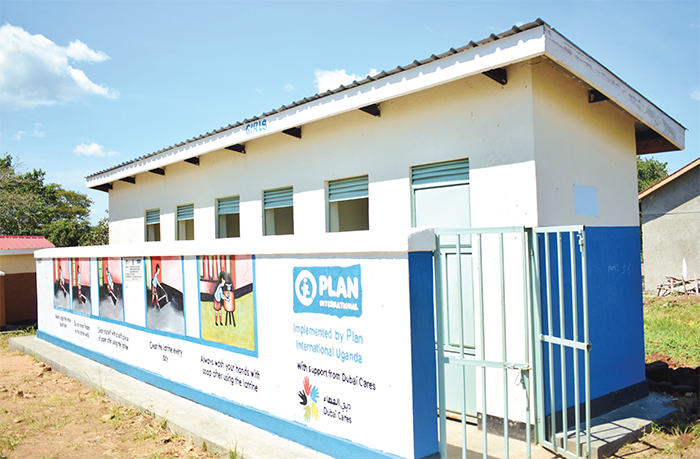Change in attitude key for menstrual management
Among primary schools in Uganda, it is common for nicknaming a girl bleeding cow by boys, once she soils her dress.
Some community members in Tororo district learning how to make pads
In many Ugandan communities, several myths, taboos and beliefs are associated with menstruation. These have compounded efforts to publicly discuss menstruation or menstrual hygiene. References to menstruation such as ensonga (Luganda for issue) point to attitudes that show unwillingness to discuss menstruation.
Uganda today joins the rest of the world to celebrate Menstrual Hygiene Day. The day is aimed at raising awareness to combat taboos associated with menstrual hygiene, with the goal of enabling women and girls to achieve their full potential. Globally, more than half of women are currently of reproductive age — and menstruation is a monthly reality. Yet many women lack access to menstrual hygiene products or sanitation facilities, either due to limited availability or excessive cost. Stigma Myths and stigmas surrounding menstruation cause some women and girls to miss school or go into isolation. Women and men of all ages must be sensitised of the importance of menstrual hygiene, through an open dialogue and education at home and in school, to foster engagement with this often unspoken issue.
The theme of Menstrual Hygiene Day this year is It is Time for Action. Not only does it emphasise the urgency of this public health issue, but also highlights the transformative power of improved menstrual hygiene, to empower the world's women and girls and unlock their economic and educational opportunities. In 2014, SNV Netherlands Development Organisation conducted a study that revealed that 25% of girls in South Sudan experienced cleansing rituals, while 28% of the girls interviewed in Uganda reported that people around them expect restrictive movements during their menses.
 Plan International has also supported the construction of gender-friendly latrines for girls in some of the schools
Plan International has also supported the construction of gender-friendly latrines for girls in some of the schools
Among primary schools in Uganda, it is common for nicknaming a girl bleeding cow by boys, once she soils her dress. Samuel Andrew Kiiza, the national programme manager in charge of Wash at Plan International, says this instils a lot of fear and shame, which culminates into continued school absenteeism during periods and, sometimes, dropping out. Findings by Women Action Front (WAF) suggests that in Uganda, the fear of soiling contributed to 35% of girls missing school during their menses. According to the International Rescue Committee (IRC) 2013 findings, lack of information and gender-friendly facilities at school, coupled with negative attitudes, contributes to girls missing out on approximately 11% of school time in Uganda.
IRC further indicates that menstrual hygiene is still being considered a secluded issue, culturally not talked about in public, yet it contributes to girls missing one to three days of primary school per month; eight to 24 days per year and 11% of schooling missed due to menstrual periods. The report also indicates that this is contributed to by a range of issues, among which are lack of gender-friendly latrines, lack of privacy, shared latrines among boys and girls and, sometimes, teachers. Baseline study A baseline study conducted in three districts in Uganda by WAF in 2013 revealed that lack of pads contributes to a lesser percentage (2%), compared to discomfort (51%) and 16% due to lack of water.
The above challenges motivated Plan International Uganda to introduce the menstrual hygiene management (MHM) programme over the last four years in the four districts of Lira, Kamuli, Tororo and Alebtong. The four-year programme is aimed at increasing access to costeffective sanitary products for the effective management of menstrual hygiene. According to Kiiza, to realise this goal, the programme adopted multi-dimensional approach to galvanising MHM, focusing on private partnership to improve access to pads, income-generation and improved MHM-related knowledge," he says.
Kiiza says good menstrual hygiene is crucial for the health, education and the dignity of girls and women. Plan International started by improving the knowledge, attitudes and practices of the different stakeholders to appreciate that menstruation is normal and natural. Plan International also works together with different government departments of health and education, teachers, health workers, community health workers, drama groups, religious leaders and school management committees. "These are trained and oriented on menstrual hygiene management as training of trainers and later engaged in training of schoolgirls and schoolboys, awareness creation within communities through dialogues, community theatres and radio talk shows. This has created a reliable human resource (local actors) to drive scale out of MHM," he says.